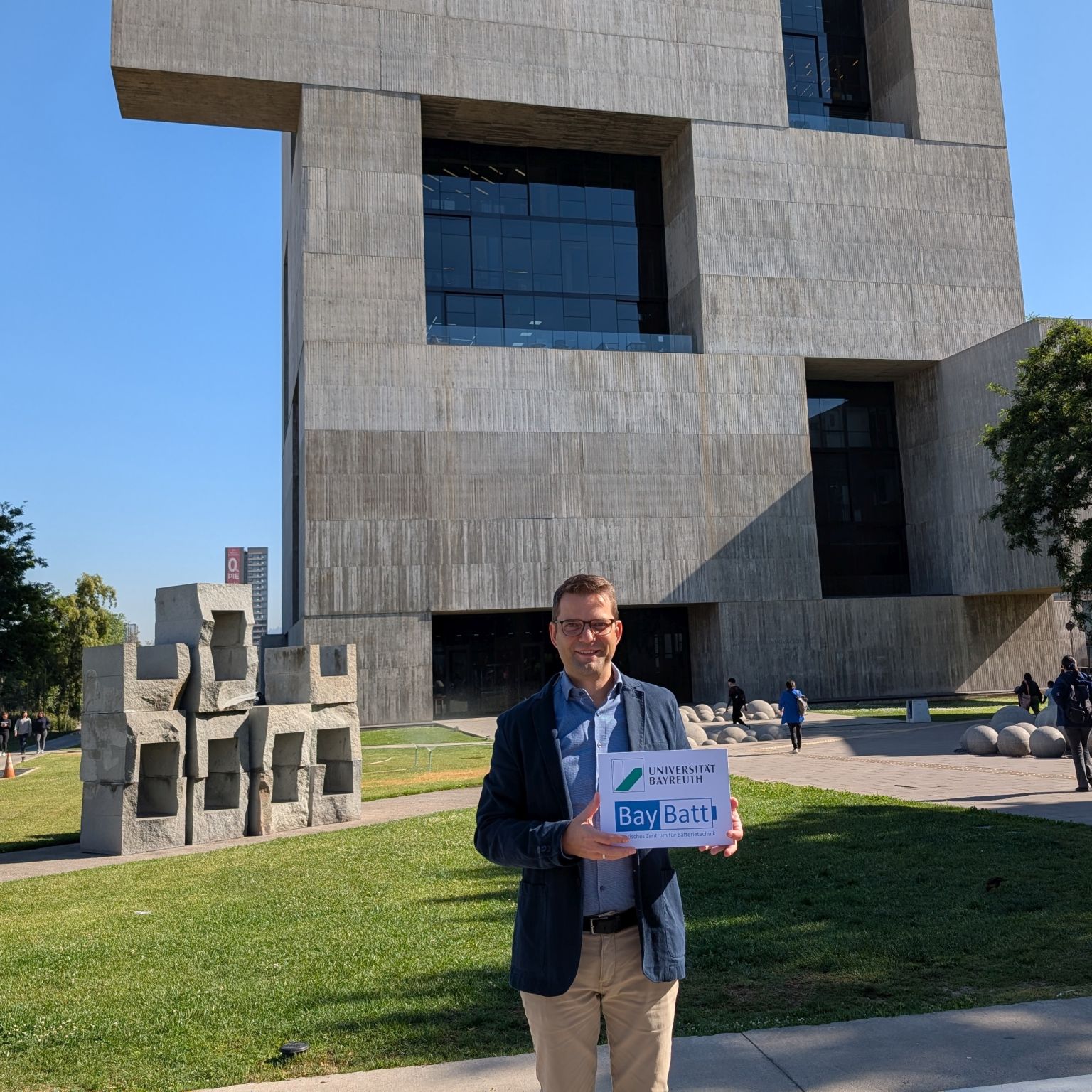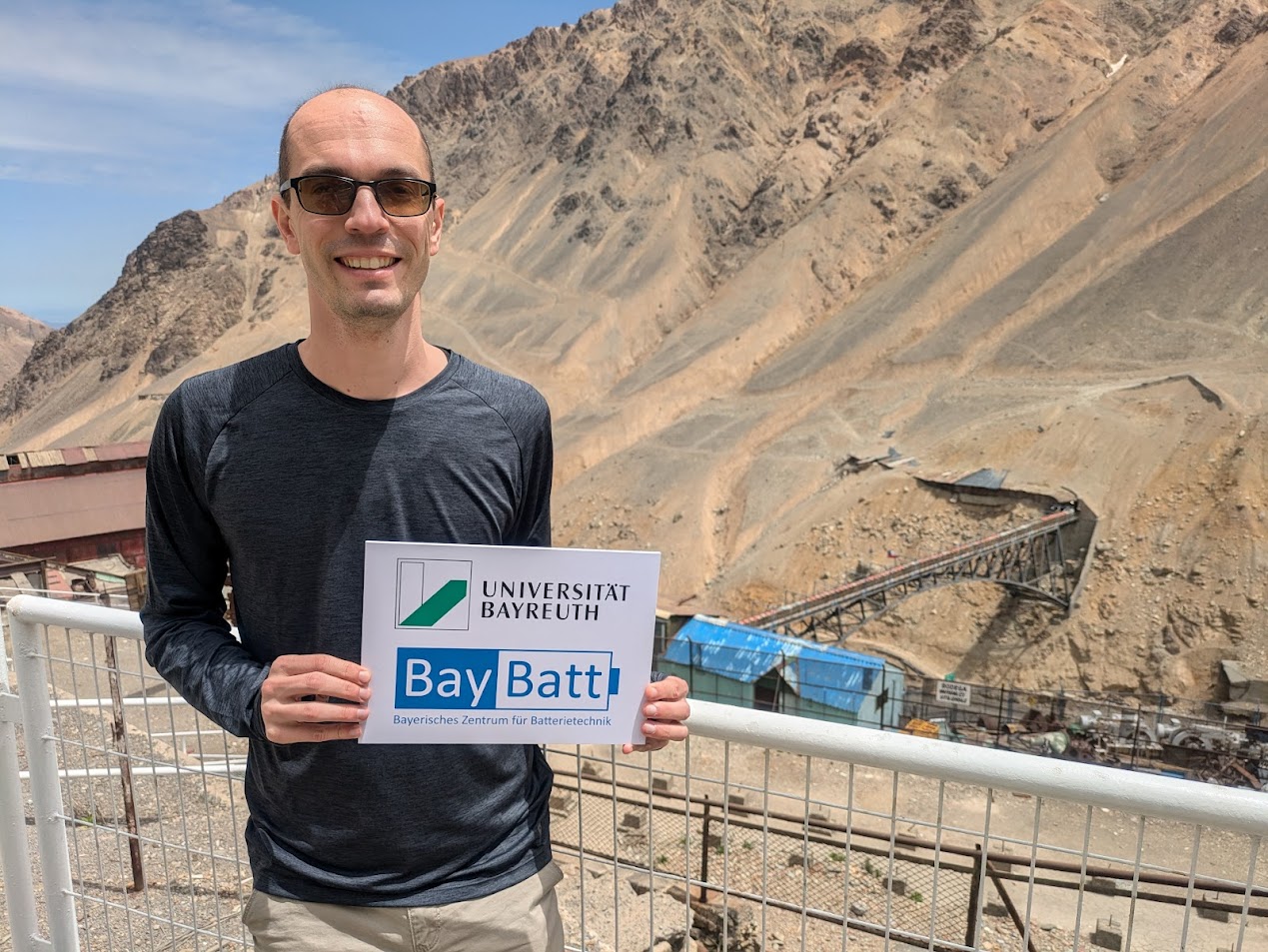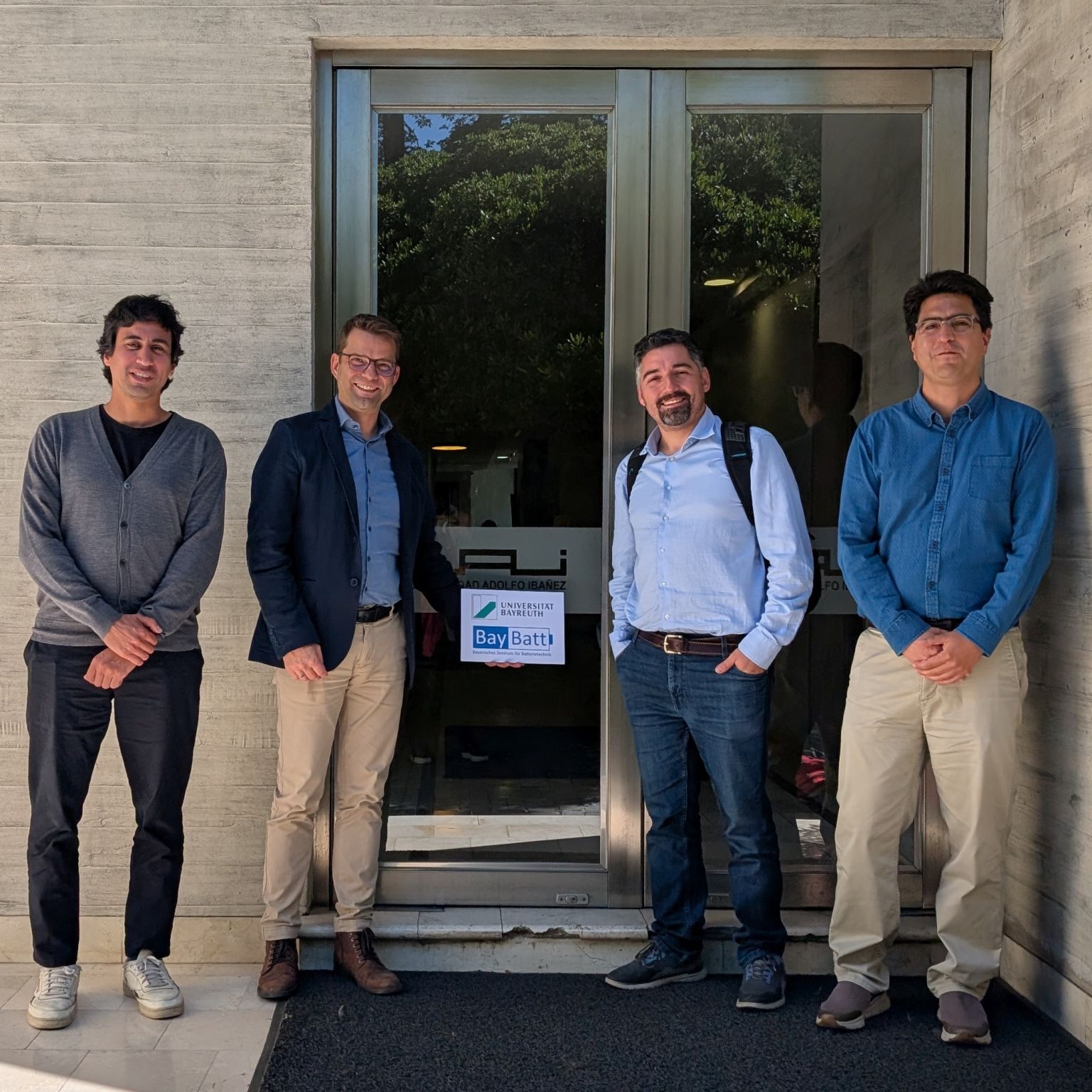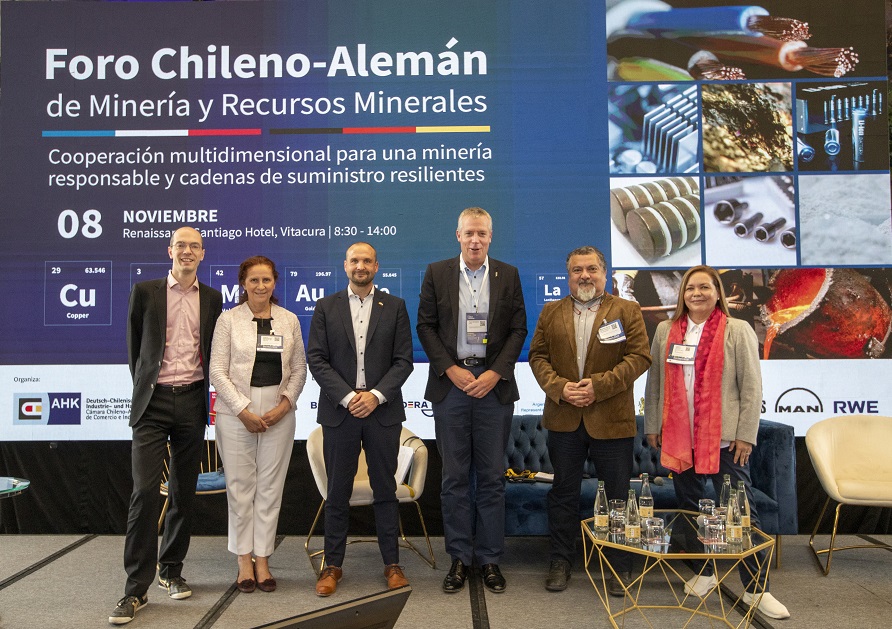News
BayBatt goes to Chile: First impressions and networking
29.11.2024

Prof. Danzer visiting universities in Santiago de Chile
Two members of the Bavarian Center for Battery Technology (BayBatt) took part in a European delegation trip to Chile at the beginning of November to present BayBatt in Chile and expand its international network. Michael Danzer, Professor of Electrical Energy Systems and Director of BayBatt, met with representatives from universities, companies and authorities in Santiago de Chile and Valparaíso to discuss research projects and strategic partnerships. At the same time, Christoph Helbig, Professor of Ecological Resource Technology at the University of Bayreuth, vis-ited important sites of major mining companies that extract and process critical raw materials for battery production in Chile.
Chile: A leading producer of lithium and copper
Chile has a long history as a mining nation. The country produces around a quarter of the world's copper and many large mining companies are active there. From November 3-8, a delegation consisting of European companies, representatives of the EU Commission and the German Fed-eral Ministry for Economic Affairs and Climate Action visited key sites in the Chilean mining industry.

Salar de Atacama
The delegation first travelled to the Atacama Desert in northern Chile. There, the US company Albemarle, one of the world's largest producers of lithium, operates a lithium extraction plant in the Salar de Atacama. Lithium-rich brine is pumped to the surface and fed into evaporation basins. The water evaporates over 18 months, increasing the lithium content to almost 6 %.
This lithium concentrate is then transported to Antofagasta on the Pacific coast, where battery-grade lithium carbonate is produced at Albemarle's “La Negra” plant. However, Antofagasta is not only an important location for the mining industry, but is also home to two universities, the Universidad Católica del Norte and the Universidad de Antofagasta, both of which are leaders in mining engineering research and are increasingly focusing on the battery value chain, which was a key topic in the discussions with Prof. Helbig.

Prof. Helbig visiting the copper mine El Teniente
The second destination of the delegation's trip was El Teniente, the largest underground copper mine in the world, which is located near Rancagua, around an hour's drive south of the capital Santiago de Chile, and is operated by the state-owned mining company CODELCO. Copper is crucial for many decarbonization technologies, such as lithium-ion batteries, where copper foil is used as the anode material. During the visit to El Teniente, the members of the delegation learned about the 120-year history of the mine. They were given an overview of the scale of the complex plant and learned about the automation and remote control of mining activities. The mine's environmental and sustainability efforts were also discussed. Finally, plans to open a new mining level below the current operations were presented, which will allow ore with a higher copper content to be mined, thereby making the mining process more efficient.
The aim of both visits was to better understand the technical challenges of the mining and production process, the CO2 footprint and water consumption in the extremely dry environment. The possibilities for increasing production, which are necessary to meet the growing global demand for batteries, were also discussed.

Prof. Danzer with colleagues from a Chilean research institute
High-ranking academic landscape in Chile
At the same time, Michael Danzer visited some of the best universities in South America in Santi-ago de Chile and Valparaíso. These include the Pontificia Universidad Católica de Chile, the Uni-versidad Adolfo Ibáñez, the Universidad Tecnica Federico Santa Maria, the Pontificia Universidad Católica de Valparaíso, the Universidad de Chile and the Universidad de Santiago de Chile. Thanks to the Bavarian Representative Office for South America in Santiago, he was able to meet with professors, academics and representatives of the universities. He provided information about BayBatt, presented the Graduate School and the Master's degree courses “Battery Technology” and “Battery Materials and Technology”, exchanged ideas on battery research and explored op-portunities for cooperation.
Battery research in Chile complements that in Germany well, as the focus of research in Chile is on the extraction of raw materials. The country produces important materials for lithium-ion bat-teries, such as lithium and copper. The main focus is on expanding vertical integration, i.e. the production of battery materials and cells. The mining industry is also being supported in order to extract CO2-neutral raw materials using battery-powered means of transportation.
Meetings were also held with CORFO, the Chilean economic development agency, and ANID, the national agency for research and development. The aim was to get to know the Chilean funding institutions and the framework conditions for cooperation. ANID is the Chilean equivalent of the DFG, promotes exchange programs and finances Chilean partners in international graduate schools.

Participants of the panel discussion at the Chilean-German Forum for Mining and Raw Materials - © AHK Chile
Chilean-German Forum for Mining and Raw Materials
Back in Santiago, both Bayreuth professors took part in two days of European and German discus-sions on critical raw materials, strategic projects, sustainable mining, circular economy and busi-ness opportunities with sustainably produced raw materials from and in Chile as part of the European delegation trip. At the Chilean-German Forum on Mining and Raw Materials, Prof. Helbig shared insights from the University of Bayreuth's research on the creation of raw material cycles. He also highlighted the role of BayBatt as an important knowledge centre that can serve as a hub for battery technology research for both academic and industrial partners.
Overall, the trip was a valuable opportunity to deepen relationships and promote future cooper-ation in battery research. The professors are especially happy that the first return visit from Chile has already taken place: on November 28, Wolfram Jahn, Professor at the Institute of Mechanical Engineering and Metallurgy at the Pontifica Universidad Catolica de Chile, visited BayBatt and got to know its research facilities at the University of Bayreuth. Further return visits are planned for the coming year.

